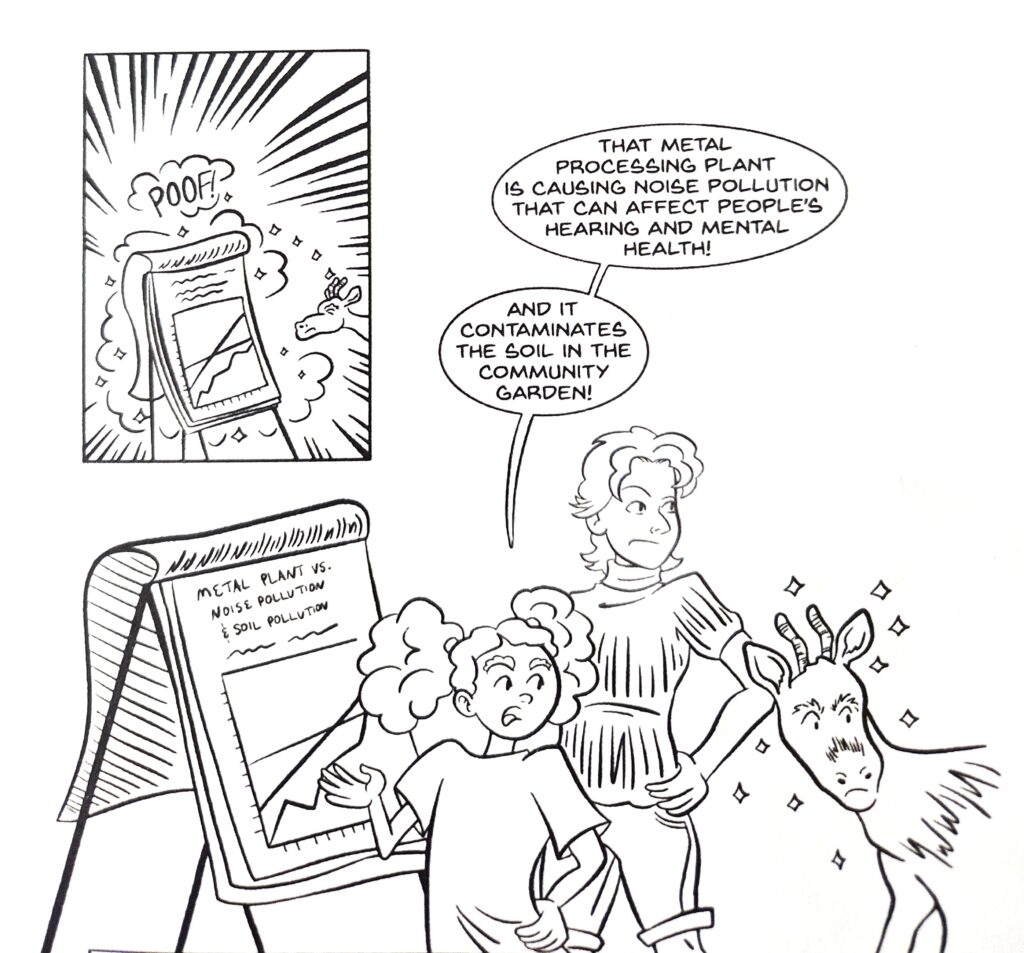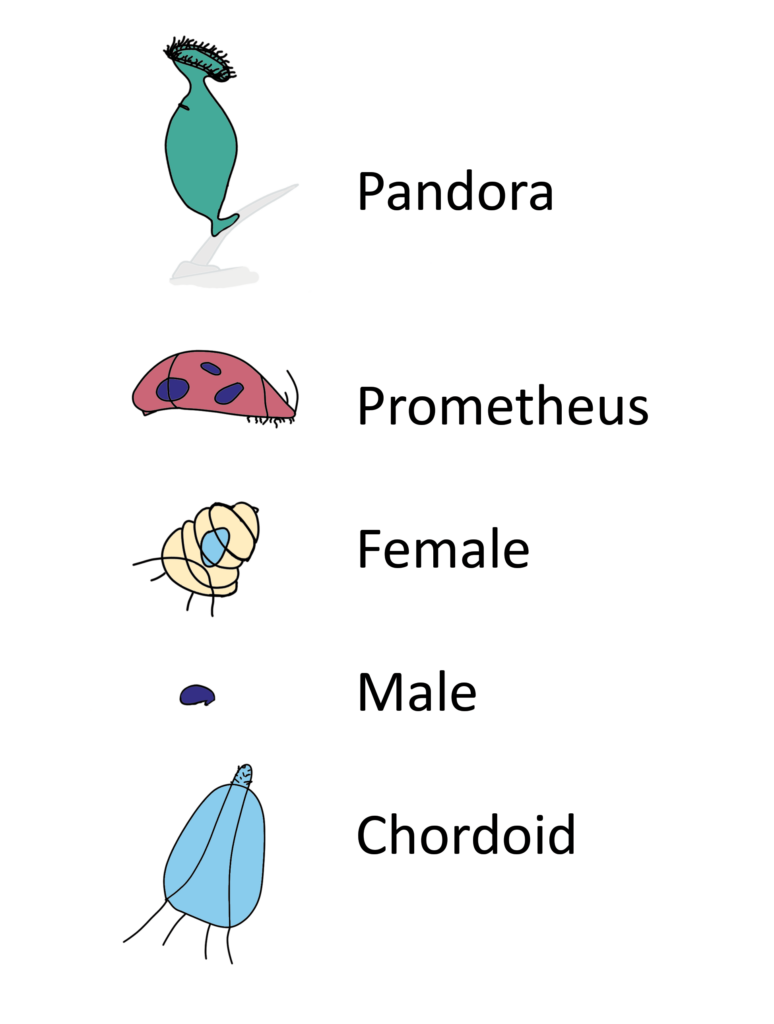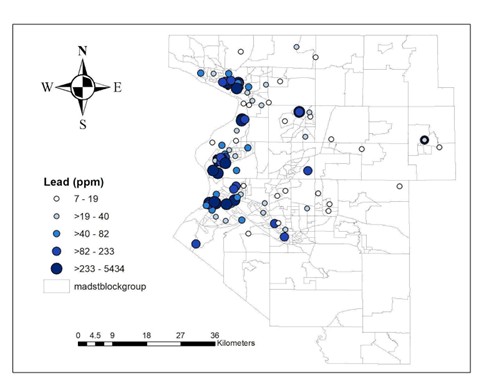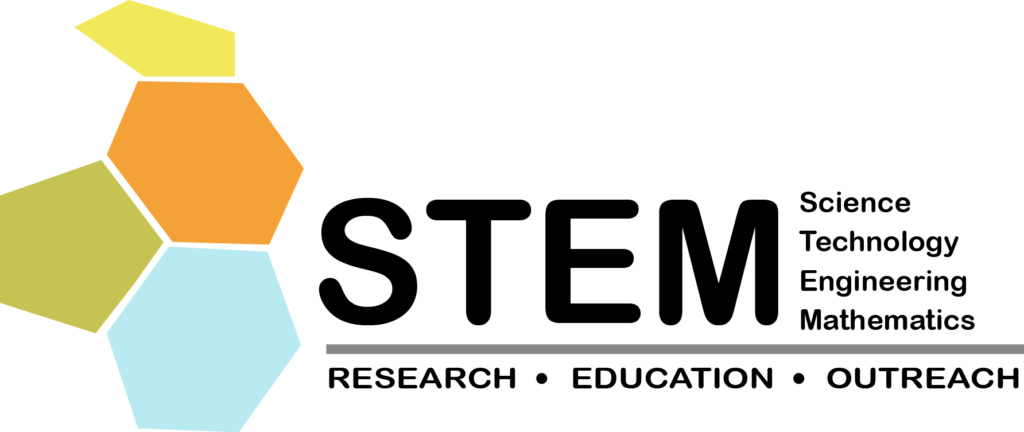The STEM Center provides many opportunities to learn more about STEM education. Whether you’re preparing to start teaching STEM, or interested in advancing what you’re already doing, the STEM Center can help. We provide a wide range of educator workshops on a variety of STEM-related topics to both classroom teachers and after-school educators. Our online curriculum library helps you guide activities, and our free lending library provides you the tools you need to bring STEM education to your program in style.
The STEM Resource Center offers a number of curricula and curricular series to help your students learn STEM. Currently, we are developing an online portal that includes free curricula designed by the STEM Center. Much of what we offer makes use of materials freely available for loan from our Resource Center, and comes with everything you need to enhance STEM learning in your classroom. We have updated the website with a few free, downloadable pdfs. Please check back with us soon as we continue to update our website with more curricula.
Lower Elementary (Grades K-2)
Colorful Chemistry: With the Colorful Chemistry kit, students explore the basic principles of chemistry by making solids disappear, baking soda bubble, and colors change. A variety of simple science experiences are used in this kit designed to help primary students observe and predict basic chemical changes. This kit is best for Grades 2-3.
The Five Senses: With the Five Senses kit, students explore the five senses of sight, sound, taste, touch, and smell. Through a variety of activities they utilize their senses and experience the wonders and beauties of the physical world. This kit is best for Grades K-1.
Simple Machines: With the Simple Machines kit, students will explore six simple machines: the inclined plane, the lever, the pulley, the screw, the wedge, and the wheel and axle. Actively studying, building, and using these machines will lead students to understand how machines reduce work. This kit is best for Grades 2-3.
We Dig Dinosaurs: With the We Dig Dinosaurs kit, students explore and gain understanding on how scientists have been able to use fossils to learn about these ancient animals. This kit is best for Grades 2-3.
The Main Attraction: With the Main Attraction kit, students will learn the answers to many questions concerning magnets and magnetism. The students will engage in such activities as constructing simple magnets, discovering how a compass works and why they are used, and experimenting to see if a magnet can attract metal through objects. This kit is best for Grades 2-3.
All Trashed Out: The All Trashed Out kit encourages students to make their own personal statement and response to the environment through increased awareness of reducing, reusing, recycling, and/or composting of solid waste materials. From sorting trash, to creating landfills, to making recycled paper, students participate in environmental conservation at all levels. This kit is best for Grades K-3.
Magnetic: As students complete the Magnetic MOSAIC kit, they will learn to identify objects that are attracted to magnets and those that are not. They will also learn the differences between the terms “attracting” and “repelling” and will be able to pick out two like poles and two opposite poles through a hands-on learning activity.
Upper Elementary (Grades 3-5)
Get a Charge: Students will increase their ability to think scientifically, strengthen their concept knowledge, and enhance their attitude towards the study of science. This kit is best for Grades 5-6.
How Does Your Garden Grow?: With the How Does Your Garden Grow? kit, students will study seed germination to determine the growing needs of plants and gain a better understanding of roots, stems, and leaves. This kit is best for Grades 4-5.
Middle School (Grades 6-8)
Water, Water, Here and There: With the Water, Water, Here and There kit, students explore aquatic environments through the scientific study of fresh and salt water. By mixing fresh and saltwater together, dropping objects into water, and identifying mixtures and solutions, students learn “hands-on” about the aquatic environment. This kit is best for Grades 5-6.
Crystal Chemistry: As students complete the Crystal Chemistry MOSAIC kit, they will learn how to explain the effects of time on crystal development, how to find or create examples of symmetry, and how to explain the necessity of a seed crystal in the crystallization process.
Eyes on the Universe: Through Eyes on the Universe MOSAIC kit, students will learn to identify the parts of a telescope and their individual function, to describe how telescopes collect and magnify light to create an image, and to explain that when they look at a star, they are seeing an image of the star in the past.
Gross Anatomy: As students complete the Gross Anatomy MOSAIC kit, they will learn about the mechanical and chemical digestive processes and be able to give examples of these processes. Students will also be able to identify a previously unknown organ by name and function. Finally, when given a list of organs, students will be able to sequence each based on its role in the digestive system.
Mystery Pellet: Through Mystery Pellet MOSAIC kit, students will identify previously unknown bones and become aware of what owl pellets are, how owls make them, and what’s inside them.
Polymers: As students complete the Polymers MOSAIC kit, they will learn to list examples of commonly used polymers. They will also learn how to differentiate between chained atoms and molecules.
What is Science?: As students complete the What is Science? MOSAIC kit, they will learn how to accurately define science, record good observations, and develop scientific questions.
Environmental Health Investigators:
The EHI curriculum was designed over the course of the five year program to emphasize students taking an active role in community-based research to address environmental health. The curriculum shows students how to become Environmental Health Investigators in their community. The 27 activities, organized into three modules, are designed to help generate and sustain interest in health sciences through authentic investigations in a real-world context.

High School (Grades 9-12)
Siege the Day: Siege the Day is designed to teach students how to approach a design problem with possible solutions to be tested and modified for improvement. Students will also record and communicate their design process and results.

Inclusive Biology: This collection of NGSS-aligned high school biology lesson plans promotes inclusive, evidence-based teaching on topics like genetics and reproduction. It is designed to challenge common pseudoscientific biases with scientific rigor, and foster a welcoming STEM learning environment for all students. The four lessons include background information, slides, and student handouts that educators can implement in any order and modify to fit their particular context.
Design to (Avoid) Disaster: The Design to (Avoid) Disaster MOSAIC kit aims to teach students appropriate designs to build prototypes, as well as to determine and record relevant data while testing a prototype. Students will also learn how to identify at least one effective design structure.
Biofuels: The Biofuels MOSAIC kit will teach students to track energy in its various forms in the conversion of sunlight to biomass to fuel. They will also learn why biofuels are a more sustainable fuel sources and to value research about alternative fuel sources.
YCITYSCI: We developed the YCITYSCI curriculum over the course of a 4 year project where we studied how to encourage science identity development in students. The youth-led environmental assessment citizen science curriculum uses hands-on research experiences to get students engaged in authentic science that is relevant to the place where they live. With over 40 lesson plans divided into 9 units ranging from Air Pollution to Science Communication this program can be implemented in its entirety, or by section, in a traditional classroom or an informal learning setting.

Digital East St Louis
The DESL curriculum is a place-based curriculum designed for middle school youth. The curriculum emphasizes student participation in field-based research to solve real-world problems in their local setting. This curriculum was develop as a collaboration between the STEM Center and the Interdisciplinary Research and Informatics Scholarship (IRIS) Center at Southern Illinois University Edwardsville in associate with NSF award #DRL – 1433660.
Oral Histories and Podcasts: This curriculum module takes students through the process of conducting oral histories, authentically analyzing them as a professional would, and developing ideas and stories about their city that they want to tell from the interviews into podcasts. Included are unit-level goals and skills to be learned, lesson plans, and accompanying online and written resources.
Video Documentaries: This curriculum module takes students through the process of developing ideas and stories about their city that they want to tell into documentary films. Included are unit-level goals and skills to be learned, lesson plans, and accompanying online and written resources.
DESL Walking Tours: This curriculum module takes students through the process of developing ideas and presenting a sense of place using images and a map. Included are unit-level goals and skills to be learned, lesson plans, and accompanying online and written resources.
Other Curricula
The STEM Center has curricula of all sorts, from our many different grant projects and after school teaching. We are continually growing our library of lesson plans and many of them feature items from our material inventory.
Professional Development
The STEM Center offers a variety of educational opportunities for future and current teachers interested in developing their skills to teach STEM topics. We have several developed workshops, and we can also design workshops that meet specific needs of your organization. Pricing for professional development programs vary by number of participants and the duration of the program. For more information, including pricing, please contact the STEM Center at (618) 650-3065, email us at stemcenter@siue.edu, or visit our Schedule a Program page.
